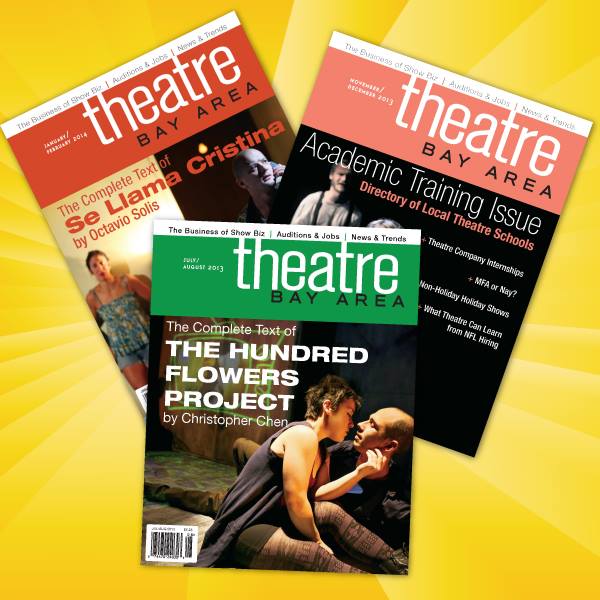SAN FRANCISCO: In a move that’s become all too common in print journalism, the service organization Theatre Bay Area announced that its bimonthly magazine of the same name will discontinue print publication and go exclusively online.
“This transition to going all online is something we’ve been literally contemplating for years now,” says Theatre Bay Area executive director Brad Erickson. Theatre Bay Area magazine, which started out as a mimeographed newsletter in 1976, will release its final print issue in May. The magazine has a circulation of nearly 3,000, with a readership consisting primarily of Bay Area artists and theatregoers.
“It just seemed that it was time, given that we only have an X amount of resources, to put all of our eggs into the digital basket, so we can be providing coverage of events here on a much more up-to-date basis,” says Erickson.

Though the news may seem sudden, the typeset has been on the wall for years. In 2011, the magazine went from 11 issues a year to six, and advertising revenue has not been sufficient enough to cover the cost of production. “We have had some budget challenges as an organization, and that’s certainly made it difficult to sustain programs that operate at a loss,” says magazine editor-in-chief Sam Hurwitt.
“We’ve been seeing something of a decline in individual memberships, and yet the way that the website is currently being used, we’ve seen usage there go up and visits go up,” says Erickson. Individual memberships to TBA have always included a subscription to the magazine. In tandem with a new organizational strategic plan from the service organization, to be released in two weeks, there will be new emphasis on other values of a TBA membership.
“We’re trying to separate the idea clearly now because there won’t be a subscription to a paper magazine,” says Erickson. “That’s not what an individual membership is about. It’s about equipping yourself for success in your career, and making this really distinct move [of discontinuing the print edition] will help us clarify that message.”
Hurwitt is less upbeat about the news, saying that he was not involved in the decision-making process and that he only found out May/June was going to be the final issue on Mar. 16.
“I think there’s a difference between agreeing and being on board,” he says diplomatically. “I can certainly get on board with the decision that has been made, even when it’s not the decision that I would make.”
Hurwitt currently oversees the magazine with a staff of two other editors. Yet while he is closing the last issue of print magazine, he is also looking forward to maximizing the potential of a website, with more daily and interactive content, in addition to the longform articles that have come to define the magazine. Within the next year, TBA’s website will be redesigned to better showcase its journalistic content across all platforms.
“We’re sitting in San Francisco, where we’re surrounded by Twitter and Air BnB and Uber—literally, their office is a block away from me,” says Erickson. “When we’re riding public transportation here, we notice, no one is reading paper! Everyone is reading a screen of some kind. And that very much includes our members.”
In addition to longform articles about Bay Area theatre, the magazine also offers job notices and show listings; it also publishes a complete playscript twice a year. Audition and job notices are currently available for free online; in the future, these will be available only to TBA members, while the rest of magazine’s online journalism will continue to be free. Playscripts will not be posted online; Hurwitt hasn’t given up on print altogether, saying he’s looking into the possibility of publishing the playscripts either in individual book or anthology form.
What does this mean for the future of the magazine as a whole? Hurwitt says he’s confident that theatre journalism will continue to be among TBA’s missions.
“I’m tremendously proud of Theatre Bay Area magazine, and when I say that, I mean regardless of platform,” he says. “It’s one of the things that we do very very well. It’s one of our most consistently excellent programs, if I do say so myself. I’m just very proud of the work that we do. And that’s not going away. That’s not just something that we’re saying—it’s something that I really deeply believe.”


